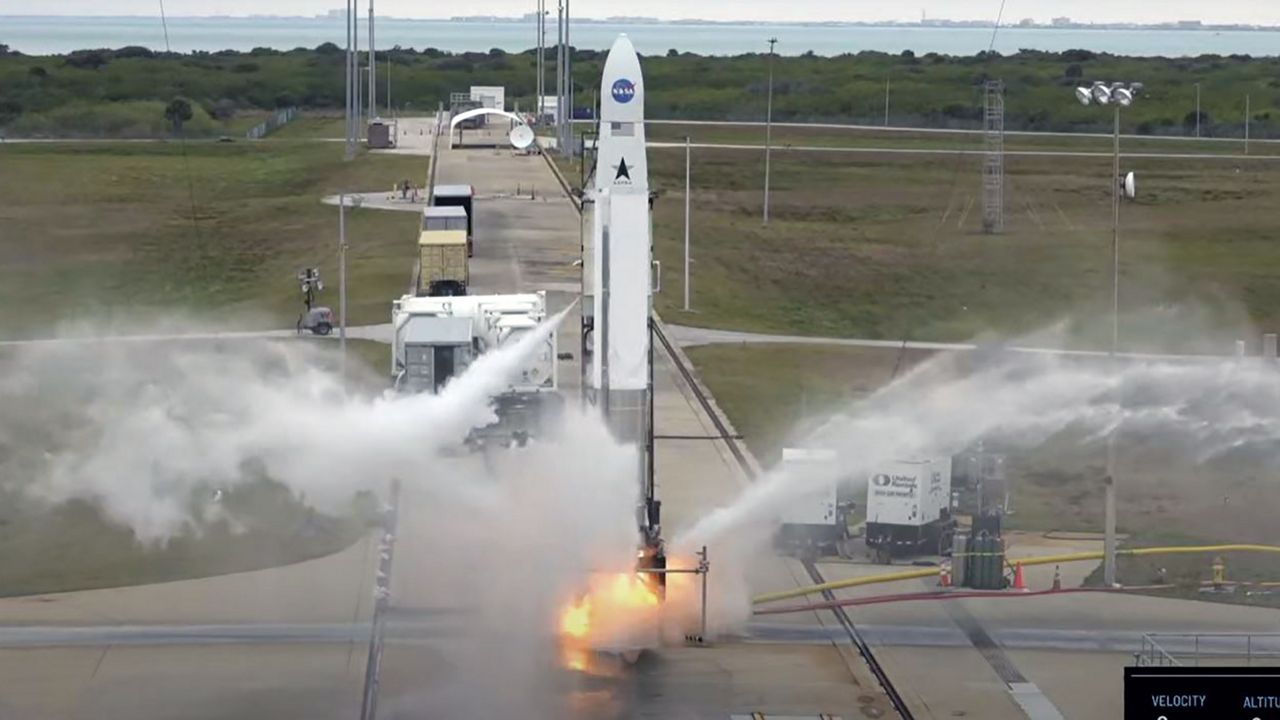BREVARD COUNTY, Fla. — Astra aborted its first Space Coast launch at T-0 seconds on Monday. While hope remained that the day could be salvaged before the window's 4 p.m. close, the launch was ultimately canceled for the day.
The abort was caused by a "minor telemetry issue," said Carolina Grossman, Astra's director of product, during a live feed.
What You Need To Know
- Monday would have been Astra's first launch from Florida's Space Coast
- Astra's Rocket 3 has launched four times out of Alaska
- This rocket is much smaller and cheaper than most commercial rockets
- A new launch date and time has not been releaesd by the California-based company
The three-hour window opened at 1 p.m. EST from Cape Canaveral Space Force Station's Complex 46 on Monday, but at T-11 minutes, 46 seconds, Astra put the launch on hold due to wind limits.
Once that was resolved, a new launch time was scheduled at 1:50 p.m. EST. But at the last moment, the rocket's internal systems aborted the mission.
This is not the first time this mission had some issues getting off the ground.
On Saturday, the launch was postponed near the 3:30 p.m. launch time due to what was described as a radar-range asset issue.
"The issue that caused Saturday's scrubbed will not be an issue today," stated Grossman during a live feed ahead of Monday's planned launch.
The company did not immediately say when the next launch will be attempted.
Standing down today due to a minor telemetry issue. We are giving the team time to complete a thorough review and will provide an update on the next launch opportunity for @NASA’s ELaNa 41 mission soon #AdAstra
— Astra (@Astra) February 7, 2022
If ultimately successful, this will be Astra's first mission with an operational payload. The payload is a cluster of six CubeSats for NASA, designed to test operations in the space environment.
"This mission includes 4 CubeSats for NASA developed by three universities and NASA’s Johnson Space Center. The CubeSats, selected through NASA’s CubeSat Launch Initiative (CSLI), are flying on the Educational Launch of Nanosatellites (ELaNa 41) mission," the company explained about the Monday mission.
Astra's Rocket 3.3 has launched four times, all from the Pacific Spaceport Complex on Alaska's Kodiak Island.
But late last year, the company announced it would attempt the ElaNa 41 mission from Cape Canaveral Space Force Station Complex 46.
The rocket is drastically smaller than today's commercial rockets, standing at only 43 feet tall.
Launch costs are also drastically cheaper and with much smaller payloads.
It's expected that more and more of these up and coming companies will be launching from the Space Coast.
"It's an opportunity for the Cape to make its mark on this new commercial market, and I think it's also a reflection of the fact this commercial market wants to come to the Cape," says Dale Ketcham of Space Florida.
Astra is launching under the FAA's new "Part 450" program, designed to streamline commercial launch regulations, making more launches possible faster.




